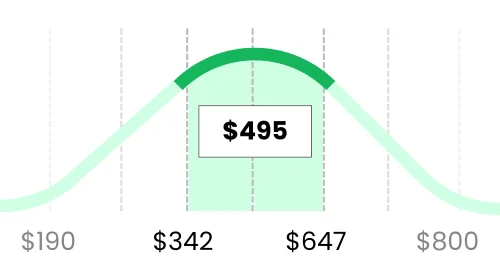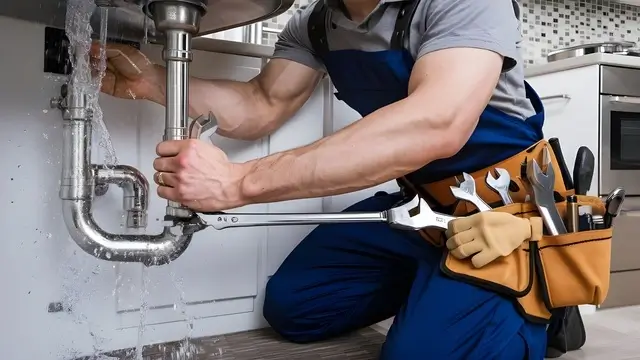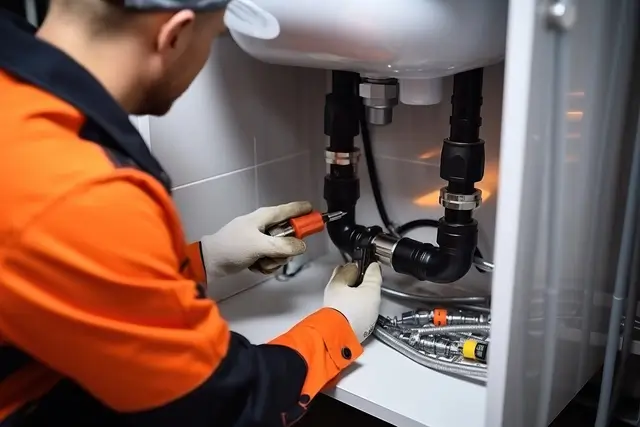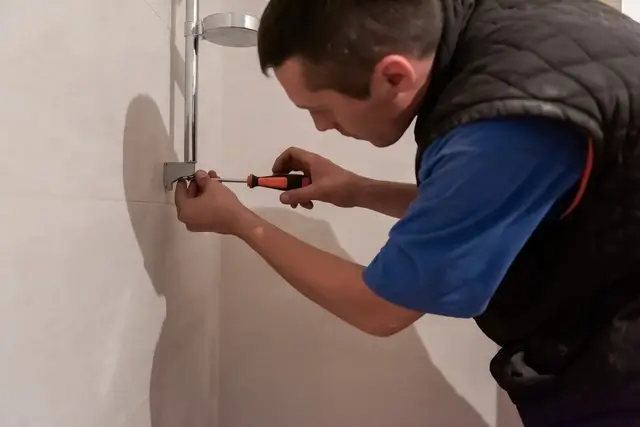$495
National average fixed price

Looking for an accurate quote for your location?

Discover how we calculate average plumber repair costs and select top-rated providers, ensuring you get the most accurate and reliable estimates.
Home » Cost Calculators » General Plumber Repairs Cost
As a homeowner, dealing with plumbing issues is almost inevitable. From minor leaks to major pipe bursts, plumbing problems can vary widely in both complexity and cost. Understanding what to expect when it comes to plumber repair costs can help you plan your budget, avoid surprises, and ensure that you’re getting fair pricing for quality work. In this guide, we’ll break down the factors that affect plumber repair costs, provide average pricing, and offer tips on how to manage these expenses effectively.

Plumbing issues can range from annoying drips to serious problems that can cause extensive water damage. Ignoring even minor issues can lead to bigger, more expensive repairs down the line. I remember a time when I put off fixing a slow-draining sink, only to discover later that the issue had escalated into a clogged pipe that required a more costly repair. Regular maintenance and timely repairs can save you money and prevent the hassle of dealing with emergencies.
The cost of plumbing repairs can vary significantly depending on several factors. Understanding these can help you anticipate the potential costs and make informed decisions.
The nature of the plumbing issue is one of the biggest factors in determining the cost. Simple repairs, like fixing a leaky faucet, are generally less expensive than more complex jobs, such as replacing a water heater or repairing a sewer line.
Labor is a significant component of plumbing repair costs. Plumbers typically charge an hourly rate, which can vary based on their experience, the complexity of the job, and your location.
Where you live can also impact the cost of plumbing repairs. Urban areas tend to have higher labor rates due to the cost of living, while rural areas may be less expensive.
The timing of the repair can also affect the cost. Plumbing emergencies that occur after hours, on weekends, or during holidays will typically incur additional fees.
The cost of materials and parts needed for the repair can vary widely depending on the job. Basic parts like washers or seals are inexpensive, but larger components like water heaters or new pipes can be more costly.

To give you a better idea of what to expect, here’s a breakdown of average plumber repair costs for common jobs:
A leaky faucet is one of the most common plumbing issues and is usually straightforward to fix. The average cost for this repair is between $100 and $150.
Drain clogs can often be resolved quickly, with costs typically ranging from $100 to $200. If the clog is deep in the system or requires specialized equipment, the cost may be higher.
Replacing a water heater is a more involved job and can be quite costly. The average cost for this service ranges from $800 to $1,500, including the new unit and installation.
Sewer line repairs are among the most expensive plumbing jobs due to the labor and materials involved. Costs can range from $2,000 to $5,000 or more, depending on the extent of the damage and the length of the line.
Consider upgrading old plumbing fixtures and pipes during minor repairs—this can prevent future issues and save money on frequent repairs down the line.
Plumbing repairs can be costly, but there are ways to manage these expenses and even save money:
Regular maintenance can help you avoid costly repairs by catching small issues before they become big problems. Simple tasks like checking for leaks, clearing drains, and maintaining water heaters can extend the life of your plumbing system.
From my own experience, scheduling a yearly plumbing inspection has been a worthwhile investment. A plumber found a small leak during one of these inspections that could have turned into a major issue if left unchecked.
Before hiring a plumber, it’s a good idea to get quotes from at least three different professionals. This allows you to compare prices and ensures that you’re getting a fair deal. Just be sure to consider the plumber’s experience and reputation, not just the price.
While some minor plumbing issues can be handled with a DIY approach, knowing when to call a professional can save you money in the long run. Attempting to fix complex problems on your own can lead to bigger issues and higher repair costs.
If your home is older or you’re concerned about potential plumbing issues, a home warranty that covers plumbing repairs can be a good investment. While there’s an upfront cost, it can provide peace of mind and save you money on major repairs.

Choosing the right plumber is crucial to ensuring that the job is done correctly and at a fair price. Here are some tips for finding a reliable plumber:
Make sure the plumber is licensed and insured. Licensing ensures that they have the necessary training and qualifications to perform the work, while insurance protects you in case of accidents or damage.
Online reviews can provide insight into a plumber’s reliability and quality of work. Look for plumbers with consistently positive reviews and a good track record in your area.
If possible, ask the plumber for references from previous clients. Speaking directly with past customers can give you a better sense of what to expect.
Before any work begins, ask for a written estimate that includes labor, materials, and any potential additional costs. This helps avoid surprises when it’s time to pay the bill.



Absolutely. While plumbing repairs can be expensive, the cost of neglecting issues or attempting DIY fixes that go wrong can be much higher. A qualified plumber brings expertise and peace of mind, ensuring that the job is done right the first time.
From my own experience, investing in professional plumbing services has saved me both time and money in the long run. Whether it’s a minor repair or a major project, knowing that a skilled professional is handling the job provides invaluable peace of mind.
If you’re facing a plumbing issue, don’t wait until it becomes a bigger problem. By understanding the factors that affect plumber repair costs and knowing what to expect, you can budget accordingly and make informed decisions about your home’s plumbing needs.
The cost to hire a plumber can vary depending on the type of repair, your location, and the plumber’s experience. On average, plumbers charge between $50 and $150 per hour. Minor repairs like fixing a leaky faucet might cost $100 to $150, while more extensive repairs, such as replacing a water heater, can range from $800 to $1,500.
Several factors can influence the cost, including the type of repair needed, the complexity of the job, the cost of materials, and your location. Emergency services, after-hours work, and the size of your home can also impact the overall cost.
In some cases, plumbing repairs are covered by homeowners insurance, particularly if the damage is sudden and accidental, such as from a burst pipe. However, damage resulting from lack of maintenance or gradual leaks is typically not covered. It’s important to check your policy for specific coverage details.
To reduce costs, perform regular maintenance, such as checking for leaks and keeping drains clear. Also, consider getting multiple quotes before hiring a plumber and addressing minor issues before they turn into major problems.
You should call a plumber for complex issues like major leaks, sewer line problems, water heater repairs, or anything involving gas lines. While some minor issues, like a clogged drain, can be handled with DIY methods, it’s best to call a professional for anything that could cause significant damage if done incorrectly.
In a plumbing emergency, the first step is to shut off the main water supply to prevent further damage. Then, contact a plumber immediately. If the issue involves a gas line, leave the premises and call your gas company or emergency services.
When choosing a plumber, check their credentials, including licensing and insurance. Read online reviews, ask for references, and get a written estimate before work begins. It’s also helpful to choose a plumber with experience in the specific type of repair you need.
The duration of plumbing repairs varies depending on the complexity of the job. Minor repairs, like fixing a leaky faucet, typically take 30 minutes to an hour. More complex jobs, such as replacing a water heater or repairing a sewer line, can take several hours to a full day.
Common signs include slow or clogged drains, low water pressure, water discoloration, foul odors from drains, and unexplained spikes in your water bill. If you notice any of these issues, it’s a good idea to call a plumber before the problem worsens.
During a plumbing repair service, the plumber will assess the issue, provide a diagnosis, and give you an estimate for the repair. Once you agree to the terms, they’ll proceed with the repair, testing the system afterward to ensure everything is functioning properly. The plumber should also clean up the work area before leaving.
No results available
Reset© 2024 All Rights Reserved
Thank you! We’ve received your request and are working on finding you the best deals in your area. We’ll connect you with top-rated local businesses shortly!